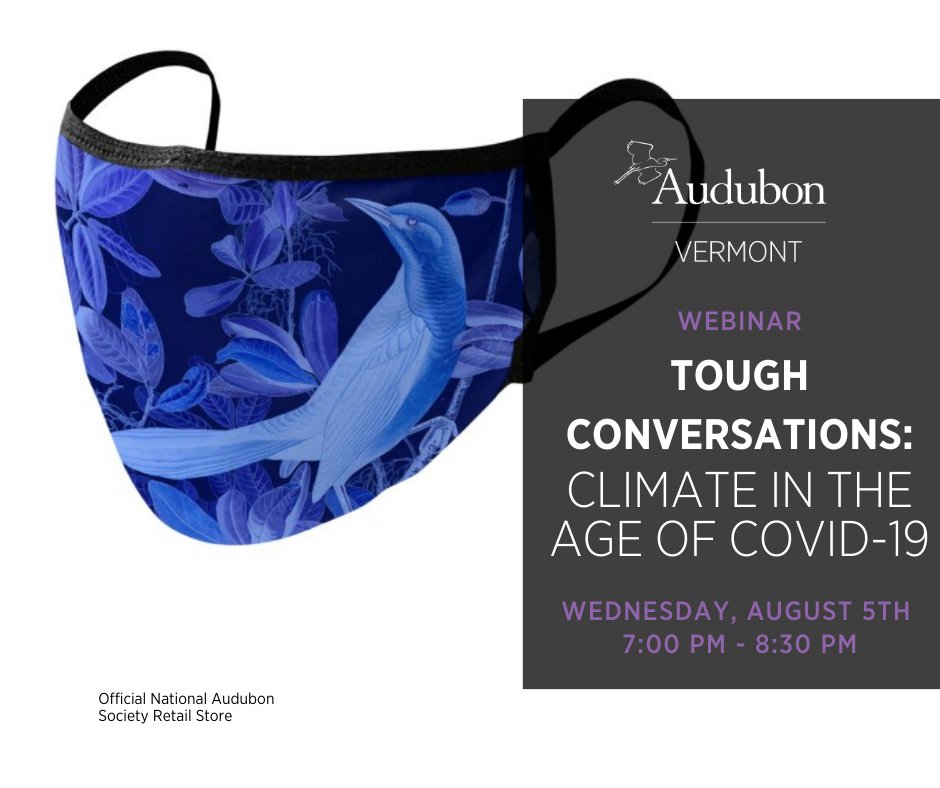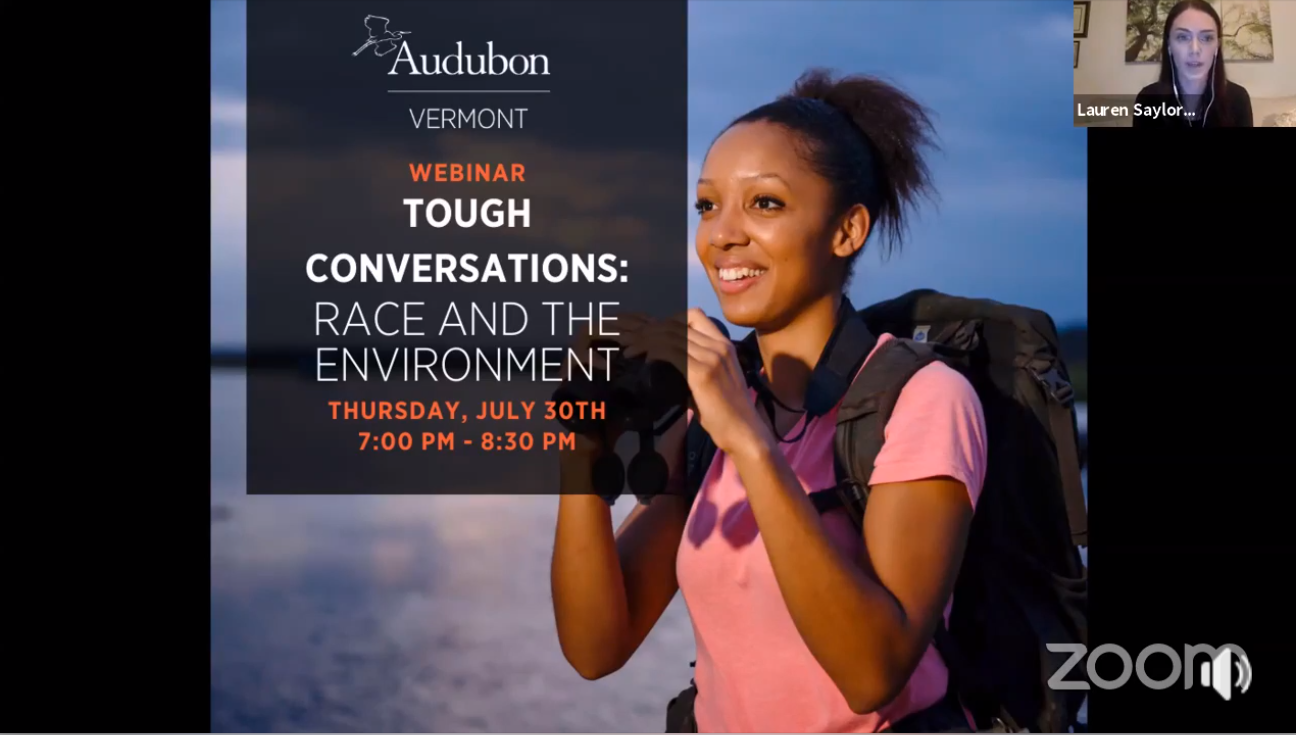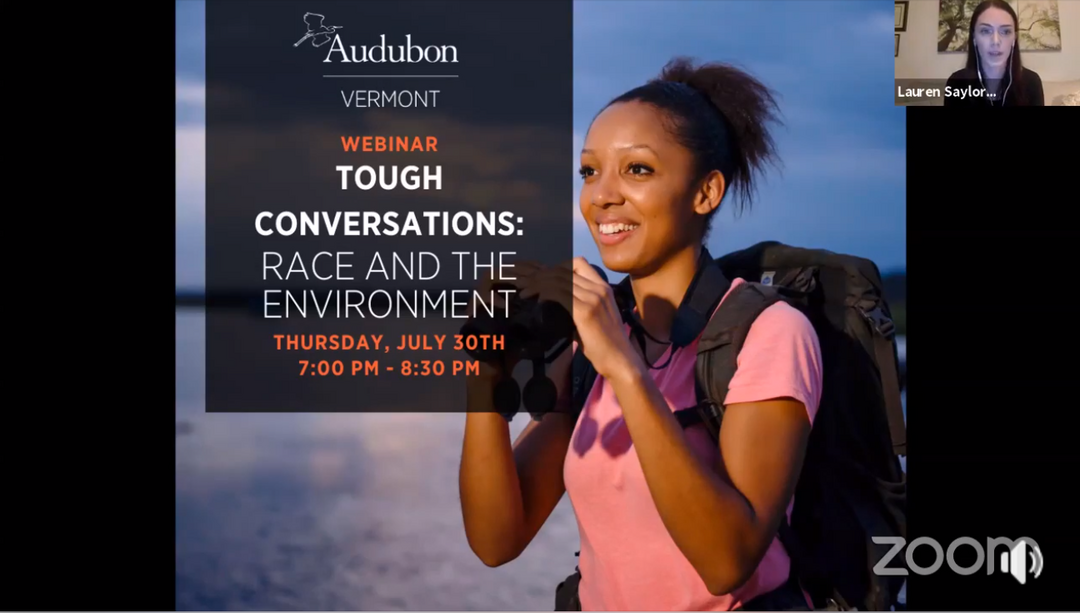"You can't care about climate justice without caring about racial justice."
-- Arielle King, panelist
Last week, Audubon Vermont hosted the first of a series of webinars meant to catalyze conversations on important environmental topics. The webinar, titled “Tough Conversations: Race & the Environment,” spotlighted four students from Vermont Law School who shared their stories on racism, disconnect from the environment and environmental movement, and the path to healing these injustices.
The webinar opened with an invitation for panelists to describe their personal relationship with the environment. "I don't really have a personal relationship with the environment,” panelist Jerry Thomas responded, "partly because of the effect imperialism and colonialism have had on destroying BIPOC's* connection with nature.”
Justin Kim framed this sentiment within the context of outdoor recreation: "I know many BIPOC birders, herpers**, and wildlife photographers that are generally scared about going out alone. They need to have a white friend go out with them." Arielle King echoed these statements on the separation between nonwhite people and the environment, adding that policies--such as park entry fees and unavailability of public transportation--further prevent BIPOC from developing relationships with the outdoors.
The panel’s stories of exclusion from outdoor spaces were matched in repeated remarks on exclusion from the environmental movement. "Within this environmental space we need to first acknowledge and recognize environmental racism and make big green organizations and green spaces more accessible for BIPOC communities. That is first and foremost,” Arielle said.
Panelist Jameson Davis built on the importance of making environmental organizations more accessible when responding to an audience member asking the panelists how people of color might be better drawn into the environmental movement. Jameson replied, "Is your program ready for BIPOC individuals to be in that space?" He explained that many organizations have not done the work necessary to create a welcoming space for BIPOC people and their perspectives.
The panelists suggested steps to remediate these institutional deficiencies. “In terms of antiracist policies, there first needs to be a recognition that there are racist policies in place," Jerry said,
"the biggest hurdle is obviously to convince policy and decision makers that everyone has a right to live in the environment.” Justin and Jameson recommended hiring more people of color within environmental nonprofits and enforcement agencies, noting the need for representation within these organizations.
In her closing remarks, Arielle encouraged the audience to keep critically analyzing surrounding institutions while working to change them. "Part of activism is finding yourself in a new space of confusion, allowing yourself to step into new conceptual terrain. When you abandon commonly held misbeliefs you might not know exactly what to do afterward, but that’s where more activism needs to be."
To watch the recording of the webinar click here. To delve deeper into the intersectionality of race and the environment, Audubon Vermont has compiled a list of educational resources here.
Tune in to our next webinar, Tough Conversations: Climate in the Age of COVID-19, Wednesday, August at 7:00 PM EST for more tough conversations led by conservation leaders. Even if you cannot attend, please register and we will send you the webinar recording. The conversation will also be available for public viewing on our website and on our Facebook page.
*”BIPOC” is an acronym standing for “Black, Indigenous, and People of Color.” For an interesting exploration of this phrase and its recent rise in usage in the U.S., see this NY Times article by Sandra Garcia from June 2020.
**”herper” is short for a person interested in herpetology -- the study amphibians and reptiles -- think “birder”, except someone on the lookout for amphibians and reptiles






